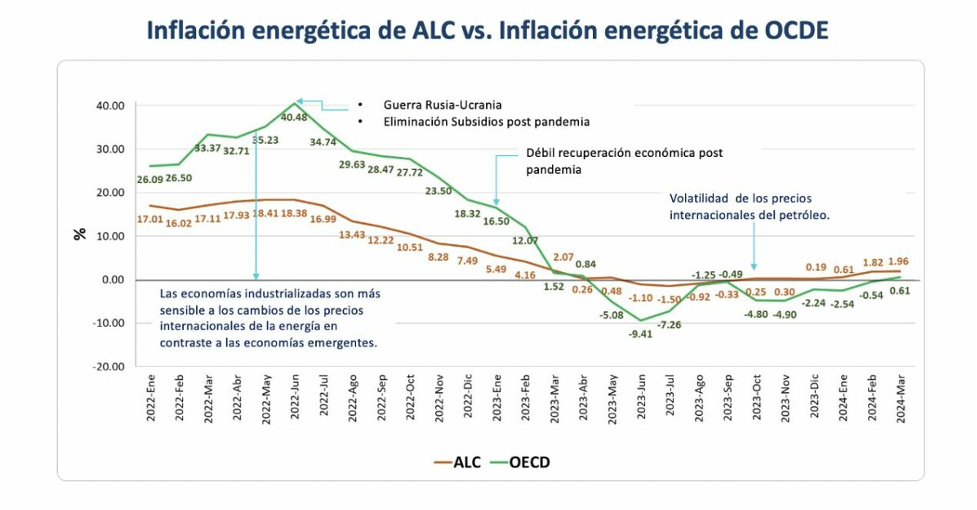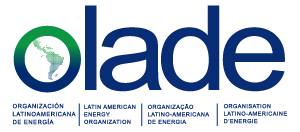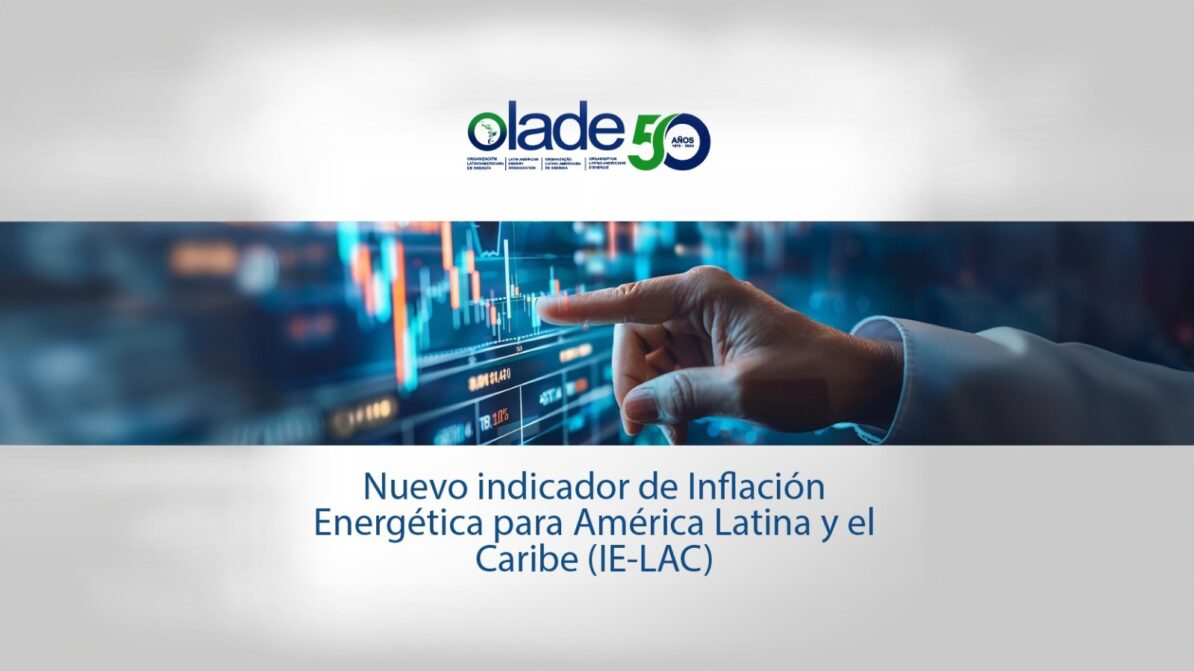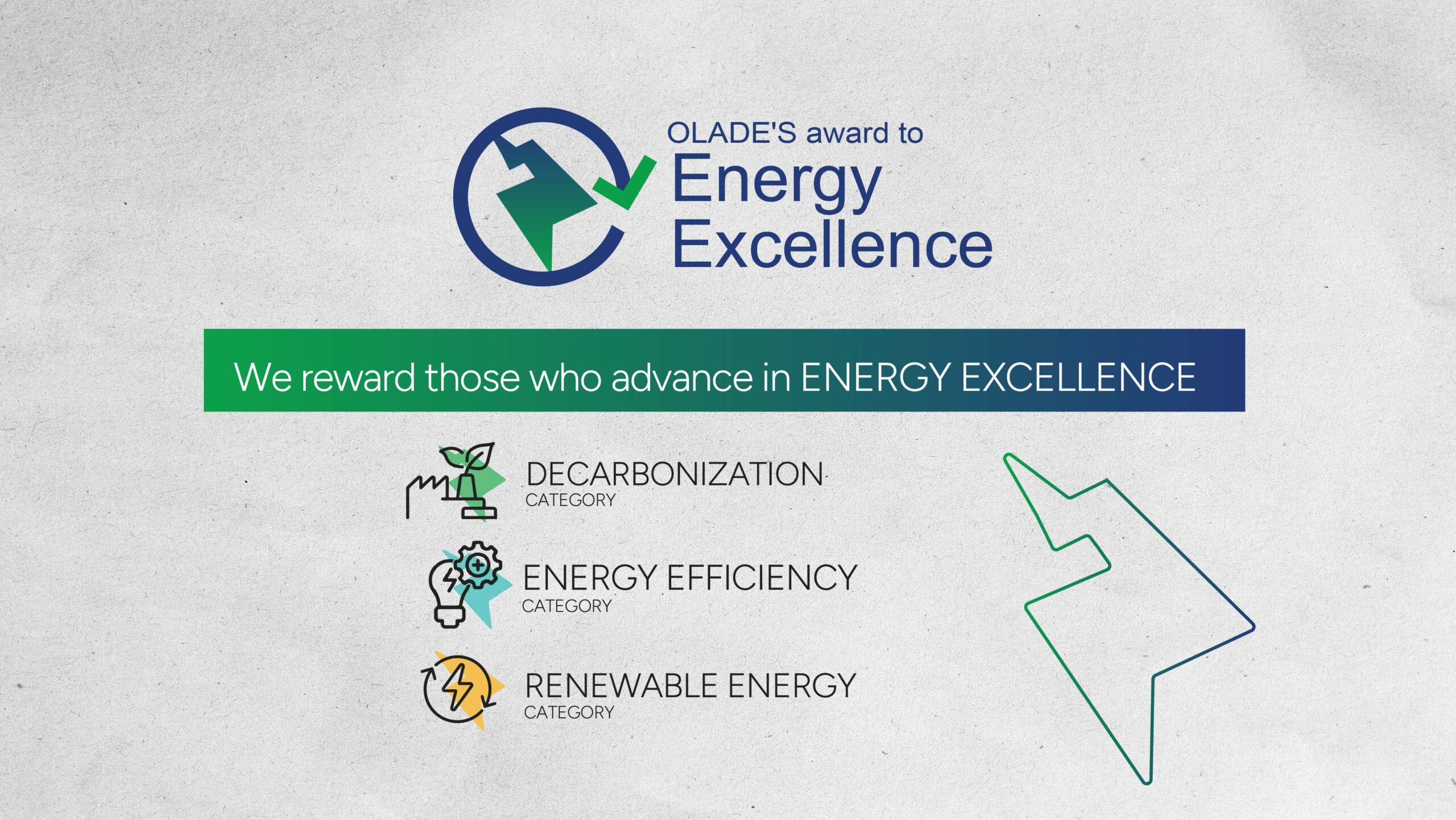OLADE’s Executive Secretary, Andrés Rebolledo, stated that this Indicator will be a very useful tool that will measure the variation of consumer price indexes (CPI) of the energy basket at the regional level and will be published monthly, offering an updated and detailed view of the dynamics of energy prices in our region.
The annual energy inflation of Latin America and the Caribbean (LAC) in March 2024 (compared to March 2023) was 1.96%. This reflects a stage of energy price stabilization in most regional economies, following the upward trend produced between 2021 and early 2022.
Until June 2022, energy inflation was on the rise as a result of i) the Russia-Ukraine conflict, ii) several economies beginning to dismantle the subsidies previously applied during the Pandemic, and iii) the post-pandemic economic recovery.
The moderate growth presented by the indicator during the second half of 2023 and the beginning of 2024 reflects the relation between fuel prices in many countries and the international price of oil, which has been volatile, but upward during most of that period.

On the other hand, the peak of energy inflation in OECD countries was reached in June 2022, when there was an annual variation of 40.48% in the price index. In fact, the percentage of GDP spent on final energy consumption in 2022 increased twice as much as in 2021.
Then, since June 2022, the sharp fall in energy inflation in OECD countries is striking. This is due to the lower demand of 15% due to the economic slowdown in this group of countries and the effort to gradually eliminate the EU’s dependence on fossil fuels and thus limit the volatility of gas and electricity prices.
In fact, after this persistent fall, only in March 2024, OECD energy inflation was positive at 0.61%.

Source: OLADE, own elaboration based on the information published in the Institutes of Statistics and Censuses and Central Banks of the OLADE member countries and information published by OECD.
Rebolledo said that “it is interesting to note that the rise in energy inflation in OECD countries has been much more pronounced than in LAC, therefore, price indices in LAC were less sensitive to the effects of the Russia-Ukraine war”
He also pointed out that this reflects that “our region has been more resilient to international price shocks, as we have a natural buffer due to the high penetration of renewable energy (65% of electricity generation) and our own production of oil, natural gas and biofuels”.
In short, energy inflation in LAC is less sensitive to the international situation than in OECD countries and, consequently, relatively more dependent on each country’s domestic policies.
Communications and Institutional
Relations Department
josefa.corral@olade.org





